Throughout the process of leading the revolution from 1930 to the present, the Communist Party of Vietnam, founded and trained by President Ho Chi Minh, has repeatedly used its intelligence and special political sensitivity to proactively analyze the situation and forecast strategies, create opportunities, grasp new fortunes, and at the same time clearly recognize emerging risks and challenges, make wise and timely decisions, and create a special development step in the history of the country and people.
Workers at Hyundai Thanh Cong Automobile Manufacturing and Assembly Plant (Ninh Binh) operate the automobile assembly and production line. (Photo: ANH AN)
The August Revolution of 1945 broke out in the context that the Soviet Union and the Allied forces had defeated fascism; the revolutionary movement to resist Japan and save the country led by the Party had developed to its peak; with 5,000 Party members, the entire Party was determined to lead the revolutionary masses into action to "use our own strength to liberate ourselves".
President Ho Chi Minh instructed: “Now the favorable opportunity has come, no matter what sacrifices are made, even if we have to burn down the Truong Son mountain range, we must resolutely gain independence.” The Party also clearly recognized the great danger: the French army sought to return to rule Vietnam and Indochina; the Allied forces entered to disarm the Japanese army, with the evil intention of sabotaging the Vietnamese revolution. In the August Revolution, the Party achieved the highest success in the science and art of seizing opportunities and repelling dangers.
In the August Revolution, the Party achieved the greatest success in the science and art of seizing opportunities and repelling dangers.
During the resistance war against the French colonialists, which culminated in the historic Dien Bien Phu campaign, President Ho Chi Minh instructed that it was imperative to defeat the French army in this campaign, only then would victory create a fundamental change to end the war.
The Party and President Ho Chi Minh soon recognized the new dangers and challenges, the US imperialists sought every way to replace the French army to impose neo-colonialism in Vietnam and Indochina. This serious challenge lasted for 21 years, Vietnam had to overcome after the Geneva Agreement (July 21, 1954).
The long-lasting cause of fighting against the US and saving the country with great hardships and sacrifices successively defeated the enemy's vicious war strategies and forced the US to sign the Paris Agreement (January 27, 1973) recognizing Vietnam's independence, sovereignty, and territorial integrity, and the US and its vassals had to withdraw all their troops.
That was the opportunity for us to defeat the puppet army and government, completely liberate the South, and unify the country. The great victory of Spring 1975, culminating in the Ho Chi Minh Campaign, was a complete victory with the opportunity of one day being equal to 20 years, while at the same time, we had to resolve the dangers: the re-intervention of the US and complicated international relations.
The great victory of Spring 1975, culminating in the Ho Chi Minh Campaign, was a complete victory with the opportunity of one day being equal to 20 years, while at the same time having to resolve the dangers: the re-intervention of the US and complicated international relations.
After April 30, 1975, the Party led the whole country to build socialism with new opportunities from the will and determination to rebuild the country to be more dignified and beautiful as Uncle Ho wished, from the position and strength of a unified country. The Vietnamese revolution had to face heavy challenges: The siege, embargo and sabotage of reactionary forces both domestically and abroad; the war to protect the Fatherland at the southwestern and northern borders; the fulfillment of great international obligations to Cambodia and Laos; the country fell into a socio-economic crisis since 1979.
From the challenges and difficulties, bright spots have emerged in the methods and models of economic development with new thinking in Hai Phong, Ho Chi Minh City, Long An and many other places. The Party focuses on summarizing and testing practices, carrying out partial innovation, overcoming subjective voluntarism, impatience and determination to innovate, focusing on innovation of theoretical thinking, first of all economic thinking.
Respect and correctly apply objective laws in specific policies and guidelines and decide on the renovation path at the 6th Party Congress (December 1986). The renovation of the 6th Congress is the order of life and a new opportunity for the country's development, as General Secretary Nguyen Van Linh emphasized.
The comprehensive national renewal policy has been constantly supplemented, developed and unified in the Platform for national construction during the transition period to socialism, and has been affirmed as correct by the practice of renewal over the past nearly 40 years.
The comprehensive national renewal policy has been constantly supplemented, developed and unified in the Platform for national construction during the transition period to socialism, and has been affirmed as correct by the practice of renewal over the past nearly 40 years.
In the process of innovation, Vietnam has the advantage of unity of perception, will and action within the entire Party and people. The Party's guidelines and Platform are loyalty to and creative development of Marxism-Leninism and Ho Chi Minh's thought, steadfastness in the path and goal of national independence and socialism that the Party and Uncle Ho have chosen, and constant supplementation of new perceptions.
Innovation is consistent with the viewpoint of “people are the root”, “people are the center”. Always starting from practice, correctly perceiving and applying objective laws, especially the characteristics and laws of the transition period to socialism. Innovation creates driving forces for development from economic benefits, mechanisms of the market economy, management by law of the rule of law State, etc.
During the renovation process, Vietnam had to overcome challenges and risks that hindered its development. The collapse of the socialist model in the Soviet Union and Eastern Europe was a great loss for the world revolution, but it also left lessons for the Communist Party of Vietnam to avoid the mistakes of other socialist parties and countries, and to have an increasingly clear understanding of socialism and the path to socialism in Vietnam, as General Secretary Nguyen Phu Trong affirmed: “We need a political system in which real power belongs to the people, by the people and serves the interests of the people…”.
Since 1994, the Party has identified four risks: falling further behind economically compared to other countries; deviating from socialism; corruption, waste; “peaceful evolution”. Up to now, these risks still exist, and in some aspects are even more complicated, especially corruption, negativity, degradation in political ideology, ethics, lifestyle, “self-evolution”, “self-transformation” of a number of cadres and Party members, threatening the survival of the Party and the regime.
The socialist-oriented renovation is currently developing strongly according to the Resolution of the 13th National Party Congress. By 2030, Vietnam strives to be a developing country with modern industry and high average income, and by 2045, a developed country with high income, becoming a powerful, prosperous, civilized, modern and happy nation.
Currently, Vietnam has many opportunities for rapid and sustainable development; has the position and strength with the foundation, potential, position and international prestige as today. The political regime is stable and promotes superiority with the strength of the great national unity bloc and the correct and steadfast leadership and governance of the Party, the effective and efficient management of the State, strong national defense and security, open foreign relations create a peaceful, friendly and cooperative environment for development.
The general trend of the world is still globalization, integration, cooperation for development. The positive impact of the fourth industrial revolution (4.0), artificial intelligence (AI), information technology and digital transformation. That opportunity is intertwined with difficulties and challenges.
That is the sabotage of hostile forces at home and abroad against the leadership of the Party and the socialist regime of Vietnam. The economy is not yet developed firmly, not yet fully exploiting its potential. The infrastructure of science and technology is not yet synchronized.
The level of human resources, especially high-quality human resources, is still limited, labor productivity is not high. Conflicts, local wars in the world, competition between major countries. The financial crisis in the region in 1998, the global economic recession since 2008 have negatively impacted Vietnam's development. The impact of non-traditional security is increasingly severe such as climate change, environment, sea level, natural disasters, epidemics (Covid-19 pandemic, Typhoon Yagi - Typhoon No. 3).
The 10th meeting of the 13th Party Central Committee (September 2024) discussed and gave opinions on documents submitted to the 14th Congress, the report summarizing 40 years of innovation and planning for the new Central Committee, Politburo and Secretariat. These are strategic contents to ensure strong development so that the 14th Congress can truly open a new era for the country and the nation. The Central Committee also decided on specific issues to better implement the strategic breakthroughs set forth by the 13th Congress.
Previously, General Secretary and President To Lam had important articles and speeches on digital transformation, building modern production forces and appropriate progressive production relations, shaping new production methods; continuing to innovate the Party's leadership and governance methods to ensure that the Party's leadership and advisory bodies are truly intelligent, exemplary, and pioneers in leadership and governance in the new era - the era of national growth.
Revolutions always have driving forces for development. In the revolution for national liberation and resistance against invaders, the driving force is patriotism, the desire for peace, independence, freedom, and belief in a just cause.
In the past period of innovation, the driving force was the economic interests of workers; the aspiration to escape poverty and become rich legitimately; the market economy; openness and international integration; promoting internal strength with external strength... Currently, it is necessary to clearly recognize the new driving forces for rapid and sustainable national development.
That driving force is the modern productive force that creates high labor productivity; the knowledge economy, applying the highest achievements of science and technology; the high-quality human resources; the new culture - both the foundation and the driving force of development; the strategic vision of the Party's leadership and power and the creativity of the people; the interests of the nation, people and national confidence, pride and self-respect.
Nowadays, it is necessary to clearly recognize new driving forces for rapid and sustainable national development.
That driving force is the modern productive force that creates high labor productivity; the knowledge economy, applying the highest achievements of science and technology; the high-quality human resources; the new culture - both the foundation and the driving force of development; the strategic vision of the Party's leadership and power and the creativity of the people; the interests of the nation, people and national confidence, pride and self-respect.
During his lifetime, General Secretary Le Duan emphasized that the core issue in the Party's leadership is to determine the correct strategic direction and choose the appropriate revolutionary method. No field requires creativity, always creativity, as in revolutionary methods.
Era is a scientific category to indicate a period, a historical era with outstanding characteristics, features, and contents that determine the development trend of a country, a nation or of all humanity. The August Revolution of 1945 opened a new era for the Vietnamese nation - the era of national independence associated with socialism. That era is also expressed as the new era of the nation - the Ho Chi Minh Era.
Identifying a new era while clarifying the characteristics, features and fundamental content so that the entire Party, people and army can thoroughly grasp and successfully implement it, bringing the nation to new heights of development.
Nhandan.vn
Source: https://nhandan.vn/van-hoi-va-thach-thuc-khi-viet-nam-phat-trien-manh-me-trong-ky-nguyen-moi-post832972.html


![[Photo] The moment Harry Kane lifted the Bundesliga trophy for the first time](https://vphoto.vietnam.vn/thumb/1200x675/vietnam/resource/IMAGE/2025/5/11/68e4a433c079457b9e84dd4b9fa694fe)
![[Photo] National Assembly Chairman works with leaders of Can Tho city, Hau Giang and Soc Trang provinces](https://vphoto.vietnam.vn/thumb/1200x675/vietnam/resource/IMAGE/2025/5/11/c40b0aead4bd43c8ba1f48d2de40720e)
![[Photo] Prime Minister Pham Minh Chinh chairs the fourth meeting of the Steering Committee for Eliminating Temporary and Dilapidated Houses](https://vphoto.vietnam.vn/thumb/1200x675/vietnam/resource/IMAGE/2025/5/11/e64c18fd03984747ba213053c9bf5c5a)
![[Photo] Discover the beautiful scenery of Wulingyuan in Zhangjiajie, China](https://vphoto.vietnam.vn/thumb/1200x675/vietnam/resource/IMAGE/2025/5/11/1207318fb0b0467fb0f5ea4869da5517)


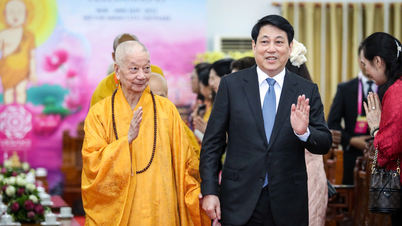

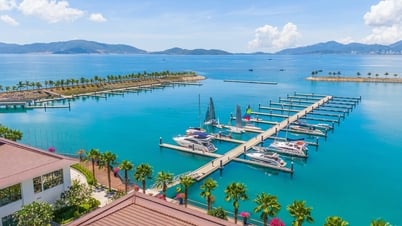

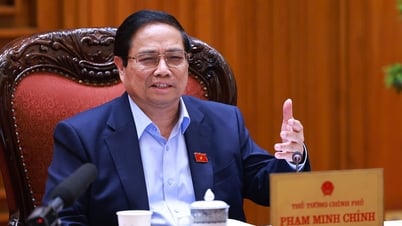

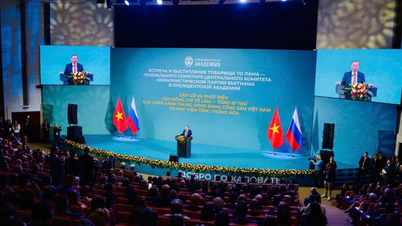

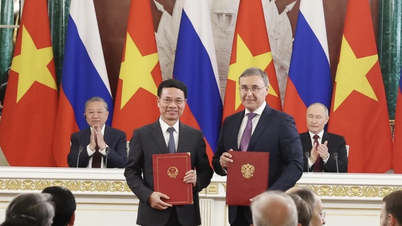
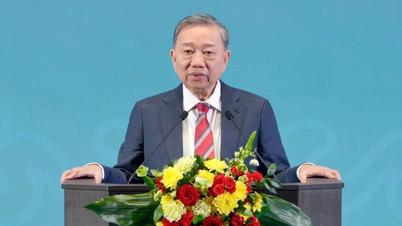

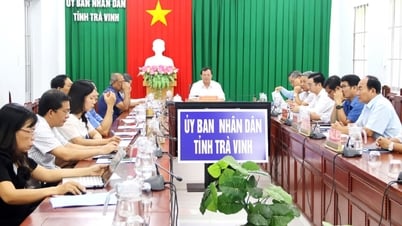
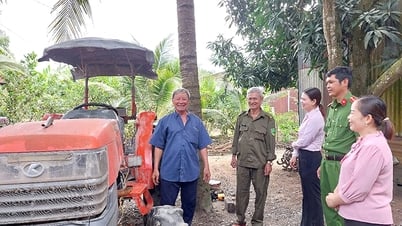
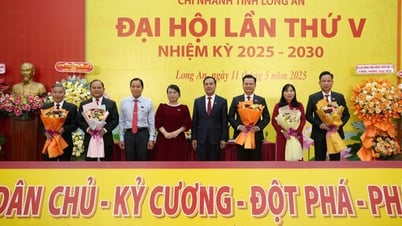
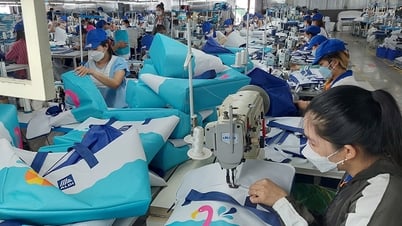
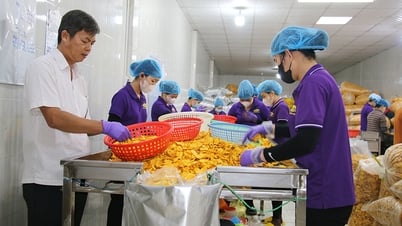
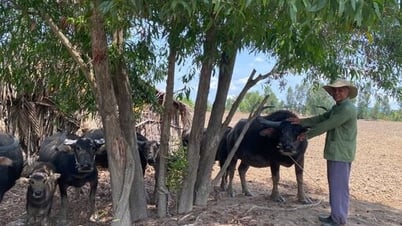





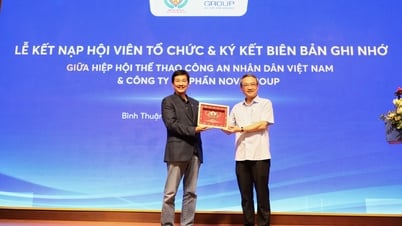





































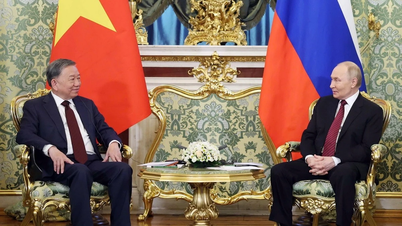













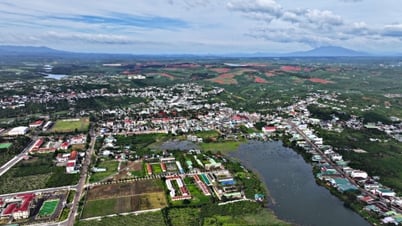
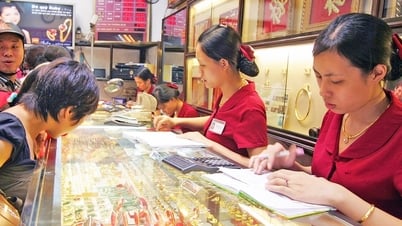

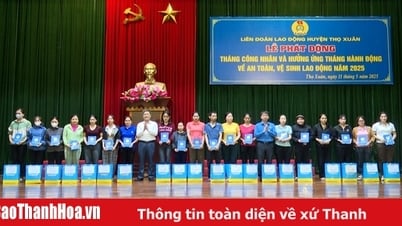










Comment (0)